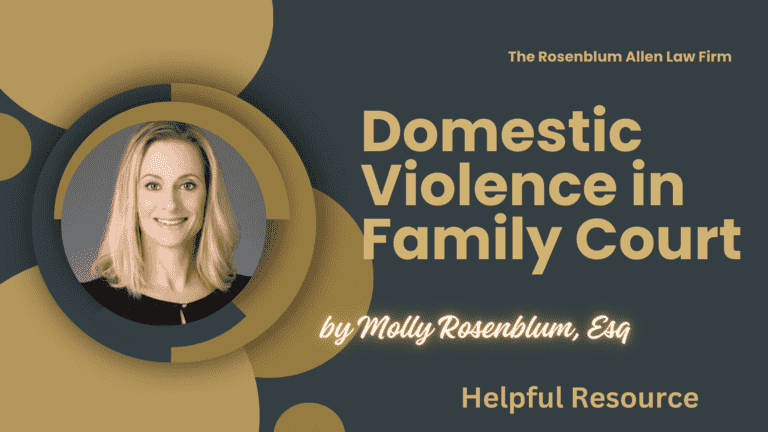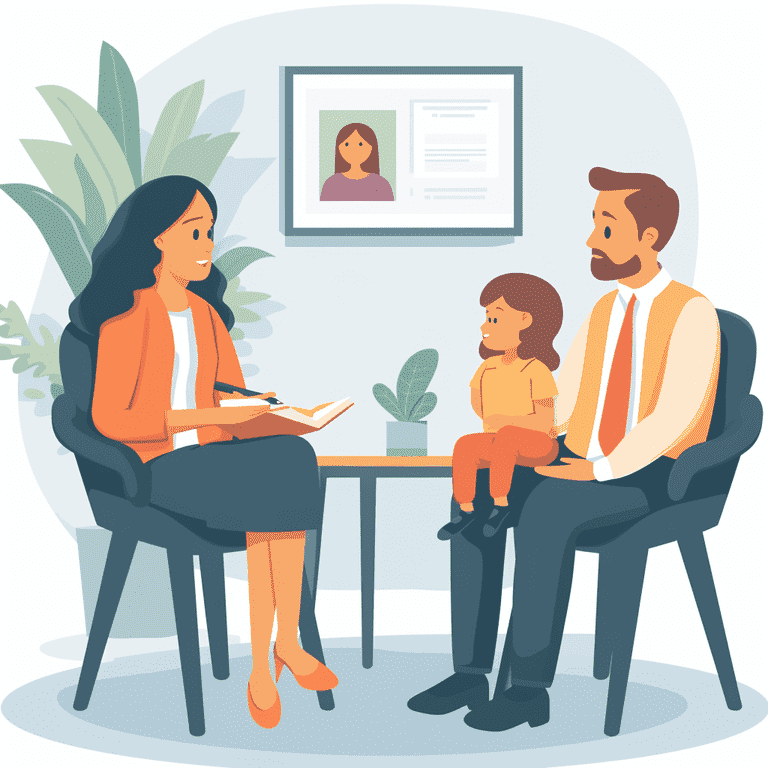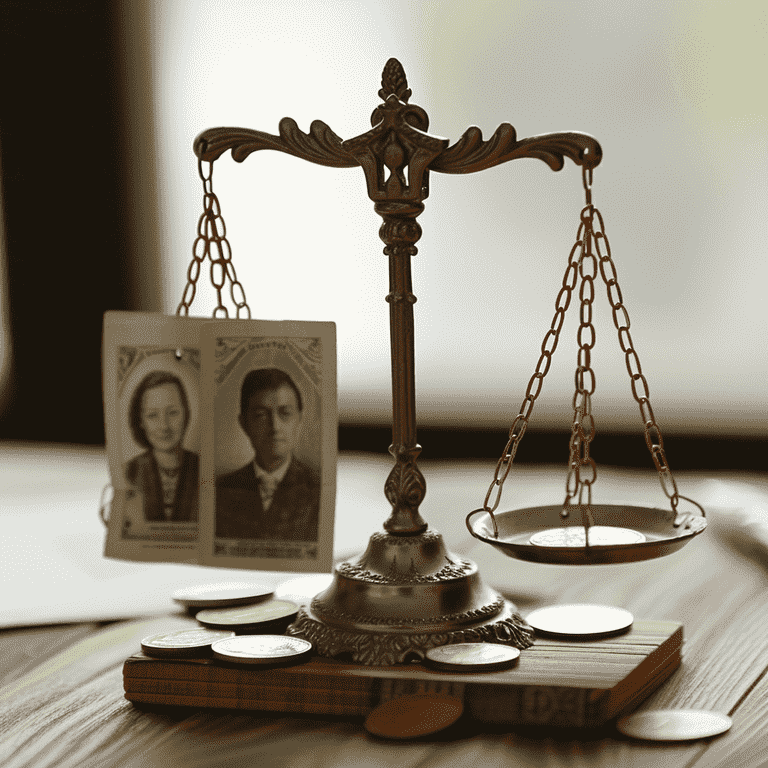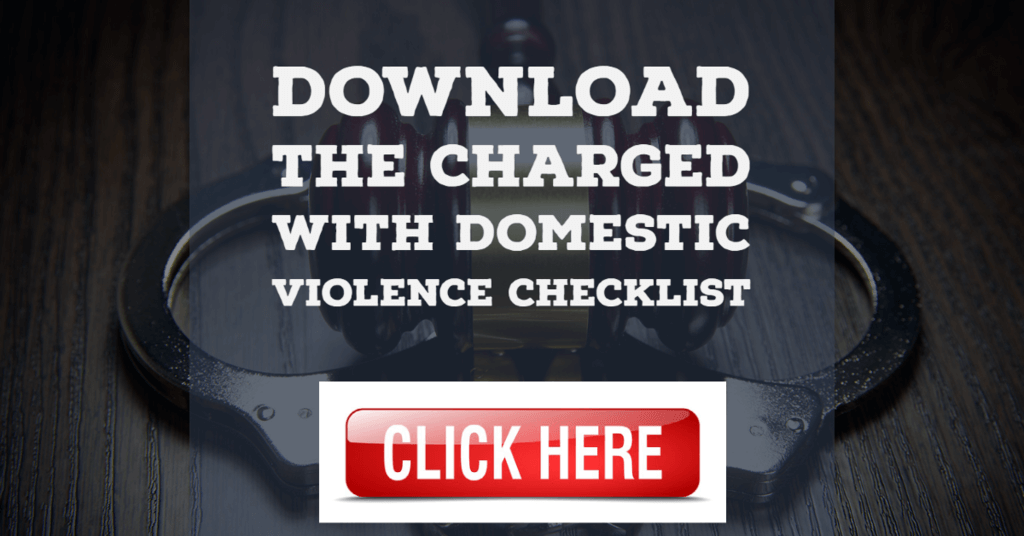Domestic violence is a critical issue that affects countless individuals in Las Vegas. Understanding your rights and options is crucial.
This is especially true when these personal crises meet the legal system. This is especially so in family court.
This guide aims to provide full insights. It covers how Las Vegas family court handles domestic violence. It offers support and guidance for those in need.

Overview of Domestic Violence Issues in Las Vegas Family Courts
In Las Vegas, as in many cities, family courts often see cases of domestic violence. These courts play a crucial role in providing justice and protection for victims. Understanding the details of how these courts operate can empower people. It helps them to navigate their cases better.
Importance of Addressing Domestic Violence in Legal Proceedings
Dealing with domestic violence in family court is vital. It ensures the safety and well-being of victims. It also significantly affects child custody, financial support, and protective orders. Las Vegas family courts recognize the issue’s importance. They are equipped to handle these sensitive situations seriously.
Understanding Domestic Violence
Domestic violence is a complex issue that goes beyond physical abuse. Understanding its many forms is crucial. It can profoundly impact individuals and families.
Definition and Types of Domestic Violence
Domestic violence includes physical, emotional, sexual, and financial abuse. It’s about trying to control or dominate within a family or intimate relationship.
Psychological and Social Impact of Domestic Violence
The effects of domestic violence are profound and far-reaching. Victims often experience psychological trauma, including depression, anxiety, and PTSD. Socially, it can lead to isolation and a sense of helplessness.
Domestic Violence Statistics in Las Vegas
Incidence Rate: Data shows that domestic violence is a significant concern in Las Vegas.
Impact on Children: A considerable percentage of children in these environments are either direct or indirect victims.
Gender and Age Breakdown: Statistics reveal trends in victimization based on gender and age.
Legal Framework in Las Vegas for Domestic Violence Cases
Knowing the law is key. This is true for anyone in a Las Vegas domestic violence case.
Nevada State Laws on Domestic Violence
Nevada’s laws provide clear definitions and penalties for domestic violence. They create a legal framework for protection and prosecution.
Role of Family Court in Domestic Violence Cases
Family courts in Las Vegas handle cases about domestic relationships. They issue protective orders and make custody decisions.
Difference Between Criminal Court and Family Court Proceedings
Criminal Court: Focuses on prosecuting the abuser for their criminal acts.
Family Court: Deals with the civil aspects, such as divorce, custody, and protective orders.
This section gives an initial look at the complex issues. It covers domestic violence in family court in Las Vegas. As we continue, we’ll explore the steps for filing a case, getting protection orders, and more. This will be a comprehensive guide for those in need.

Filing a Domestic Violence Case in Las Vegas Family Court
Taking the step to file a domestic violence case is a brave and significant move. Knowing the process and what you’ll need to begin is essential.
Steps to File a Domestic Violence Case
Contact Law Enforcement: If you’re in immediate danger, call 911.
Gather Documentation: Collect evidence of abuse, such as photos, messages, or medical reports.
Consult an Attorney: A lawyer specialized in domestic violence can guide you through the legal process.
File a Complaint: This is done at your local family court. The complaint outlines the incidents of abuse and requests relief.
Necessary Documentation and Evidence
Photographic Evidence: Pictures of injuries or damage.
Medical Reports: Documentation of injuries from a healthcare provider.
Witness Statements: Accounts from people who have witnessed the abuse.
Communication Records: Emails, texts, or voicemails that demonstrate abuse.
Importance of Legal Representation
Having an attorney can significantly impact the outcome of your case. They can:
Provide legal advice tailored to your situation.
Help gather and present evidence.
Represent you in court hearings.

Protection Orders in Las Vegas
Protection orders are legal documents. They restrict the abuser from contacting or coming near the victim. Understanding how to obtain and enforce these is crucial for your safety.
Types of Protection Orders in Nevada
Temporary Protection Order (TPO): Quick, short-term protection, typically lasting up to 30 days.
Extended Protection Order: Can last up to 1 year, granted after a court hearing.
How to Obtain a Protection Order
File a Petition: Available at family court or online.
Attend the Hearing: Present your case to a judge.
Receive the Order: If granted, the order is issued and enforceable immediately.
Enforcement and Limitations of Protection Orders
Police Enforcement: Violating a protection order is a criminal offense.
Limitations: These orders can’t resolve custody or financial issues.

Child Custody and Domestic Violence
In cases involving domestic violence, child custody decisions prioritize the child’s safety.
Impact of Domestic Violence on Child Custody Decisions
Courts consider any history of domestic violence when determining custody.
The primary concern is the child’s well-being and safety.
Evaluating the Child’s Best Interest
Factors considered include:
The child’s physical and emotional needs.
The capacity of each parent to provide a safe environment.
Any history of abuse by either parent.
Supervised Visitation and Safety Measures
Sometimes, the court may order supervised visitation to ensure the child’s safety.
Additional safety measures, such as neutral drop-off locations, can be implemented.
These sections aim to explain the key steps. They cover addressing domestic violence in family court in Las Vegas. Each step is crucial. They help you navigate this tough journey. They go from filing a case to ensuring your and your children’s safety. The next sections will cover financial support, legal resources, and navigating the court process.

Financial Support and Division of Assets
Dealing with money issues in domestic violence cases is a key step. It leads to independence and stability. It is critical to understand how finances are handled in these cases.
Alimony Considerations in Domestic Violence Cases
Impact on Alimony Decisions: Courts may consider abuse when determining alimony, potentially leading to variations in standard calculations.
Protection of Victim’s Financial Rights: Legal measures are available to ensure that victims are not financially penalized due to abuse.
Property Division and Financial Assets
Equitable Distribution: Nevada follows the principle of equitable distribution, dividing assets fairly, though not always equally.
Consideration of Abuse: The impact of abuse on the family’s finances is often considered during asset division.
Financial Support for Survivors of Domestic Violence
Emergency Funds: Short-term financial assistance for immediate needs.
Long-Term Financial Planning: Assistance with employment, education, and housing to support long-term independence.

Legal Support and Resources in Las Vegas
Finding good support is crucial in family court. This is especially true in domestic violence cases.
Finding the Right Attorney for Domestic Violence Cases
Specialization in Domestic Violence: Look for attorneys with experience in domestic violence cases.
Understanding and Empathy: An attorney who understands the sensitive nature of these cases can provide better support.
Legal Aid and Pro Bono Services
Legal Aid Organizations: Provide free or low-cost legal services to qualified people.
Pro Bono Programs: Some attorneys offer free services to victims of domestic violence.
Support Groups and Counseling Services
Emotional Support: Group or individual counseling can help in coping with trauma.
Community Resources: Access to shelters, financial aid, and job training.
Navigating the Court Process
Knowing how to navigate court can greatly affect your case’s outcome.
Preparing for Court Hearings
Gather Documentation: Bring all relevant evidence and documents.
Practice Your Testimony: Be prepared to tell your story clearly and concisely.
Understanding the Role of Judges and Court Personnel
Judge’s Role: Makes decisions based on the law and presented evidence.
Court Personnel: Assist in the administrative aspects of your case.
Rights of the Accused and the Complainant
Rights of the Accused: The right to a fair trial and legal representation.
Rights of the Complainant: Right to safety, to present evidence, and to have an attorney.
These sections cover the financial aspects. They also cover the legal support options. They also cover the court processes in Las Vegas family courts for domestic violence cases. Understanding these facets is crucial for anyone navigating this challenging path. The final sections of the guide will cover safety planning. They will also explain the importance of community support.

Safety Planning and Support Services
Creating a safety plan is a critical step for those facing domestic violence. Knowing where to find support services can provide a lifeline during challenging times.
Strategies for Personal Safety and Security
Emergency Plan: Have a plan for a quick escape, including a packed bag with essentials.
Safe Communication: Use secure methods of communication that the abuser cannot monitor.
Confide in Trusted Individuals: Share your situation with someone you trust for support and assistance.
Local Shelters and Emergency Services
Shelters in Las Vegas: List safe houses and shelters providing emergency accommodation.
Emergency Hotlines: Access to 24/7 hotlines for immediate help and advice.
Long-Term Support and Recovery Resources
Counseling Services: Access to trauma-informed counseling for recovery and healing.
Financial and Legal Help: Programs to help rebuild financial independence and legal matters.

Breaking It All Down
This guide has given a complete overview. It covers how to handle domestic violence cases in family court in Las Vegas. The insights aim to empower and support people affected by domestic violence. They cover understanding the law, navigating the court, and prioritizing safety.
Importance of Legal and Emotional Support
Dealing with domestic violence is tough. It needs both legal and emotional help. It’s crucial to seek pro help. You should also lean on supportive resources. They will protect your rights and prioritize your well-being.
Encouraging Community Awareness and Support
Raising awareness about domestic violence is vital. It has a big impact on individuals and families. Community support can make a big difference in the lives of those affected. Together, we can work towards a safer and kinder environment for all.

Frequently Asked Questions
How long does it typically take to resolve a domestic violence case in Las Vegas Family Court?
The duration can vary based on the complexity of the case. Some cases may resolve in a few months. Others might take longer, especially if there are disputes over custody or money.
How can I change my attorney if I’m not satisfied with their representation in my domestic violence case?
You have the right to change your attorney at any time. Inform your current attorney in writing and seek a new one that better suits your needs.
Are there any specific programs in Las Vegas that assist children affected by domestic violence?
Yes, several programs in Las Vegas are meant to help children hurt by domestic violence. They offer counseling and therapy.
Can a protection order in Las Vegas restrict my partner from seeing our children?
A protection order can include provisions for child safety. These rules may limit or restrict the abuser’s access to the children. This is often while waiting for a full custody evaluation.
If I’m a victim of domestic violence, can I file for divorce and a protection order at the same time?
Yes, you can file for divorce and request a protection order simultaneously. These are separate legal actions, but they can be pursued concurrently.
How does domestic violence impact spousal support decisions in Las Vegas Family Courts?
Domestic violence can influence spousal support decisions. Courts may consider the abuse when determining the amount and duration of support.
What should I do if the abuser violates the protection order in Las Vegas?
If a protection order is violated, you should contact law enforcement immediately. A protection order violation is a legal offense and can result in arrest and prosecution.
Are there confidentiality protections for victims of domestic violence in family court proceedings?
Yes, family courts in Las Vegas protect the confidentiality of domestic violence victims. They seal certain records and hold private hearings when needed.
Can I obtain a protection order against someone I’m not married to or don’t have children with?
Yes, protection orders in Nevada are not limited to marital relationships. They can be obtained against any person who has committed domestic violence. It doesn’t matter what the relationship is.
What resources are available for financial assistance during a domestic violence case in Las Vegas?
Many resources can help. These include local non-profits and government programs. They offer money for legal fees, housing, and related costs.
How do I access support groups for domestic violence survivors in Las Vegas?
You can find support groups at local shelters, community centers, and groups for domestic violence survivors. Many of these groups offer both in-person and virtual support sessions.
If I’m an immigrant, will filing a domestic violence case affect my immigration status?
Filing a domestic violence case should not negatively impact your immigration status. There are specific legal protections for them. There are also visas available. They are for immigrant victims of domestic violence.
Can I still receive alimony if I’m the one who filed for divorce due to domestic violence?
Yes, filing for divorce, even in cases with domestic violence, does not disqualify you from alimony. If you meet the legal criteria for spousal support, you can get it.
Is it possible to keep my address confidential from the abuser in court documents?
Yes, courts can protect your address and personal information. They can keep them from being disclosed in court documents to ensure your safety.

Glossary
Alimony: Financial support paid by one spouse to the other after a divorce. It’s designed to provide financial assistance to spouses who earn less income during the marriage.
Child Custody: The legal right to decide for a child (legal custody) and the right to have the child live with you (physical custody). In domestic violence cases, these decisions are made with the child’s safety as a priority.
Domestic Violence: A pattern of behavior in any relationship that is used to gain or maintain power and control over an intimate partner. It can be physical, sexual, emotional, economic, or psychological actions or threats of actions that influence another person.
Equitable Distribution: A legal principle used in divorce cases to divide property and assets fairly, though not equally, between spouses.
Extended Protection Order: A court order that provides longer-term protection than a Temporary Protection Order, typically lasting up to one year.
Family Court: A court with jurisdiction over family-related matters and domestic relations, including divorce, child custody, and domestic violence cases.
Legal Aid: Legal assistance is provided at a reduced cost or free of charge, often to individuals with low income, in various legal matters, including domestic violence.
Protection Order: A legal order issued by a court to protect a person from further harassment, abuse, or threats. In the context of domestic violence, it restricts the abuser’s actions towards the victim.
Pro Bono Services: Legal services provided for free or at a reduced fee to assist individuals who cannot afford legal representation. Many lawyers offer pro bono services for domestic violence cases.
Supervised Visitation: A court-ordered arrangement where a non-custodial parent can visit their child only under the supervision of another adult or professional agency. This is often used in domestic violence cases to ensure the child’s safety.
Temporary Protection Order (TPO): A short-term protection order, often granted immediately without a hearing, to protect a victim of domestic violence. It usually lasts up to 30 days.
Trauma-Informed Counseling: Counseling that recognizes and emphasizes understanding the effects of trauma and integrates this understanding into therapeutic practices.
Witness Statements: Written or oral declarations made by individuals who have observed or have knowledge of events related to the case, such as instances of domestic violence.
By familiarizing yourself with these terms, you can better navigate and understand the complexities of domestic violence cases in the context of Las Vegas family courts.

Additional Resources for You
Molly Rosenblum, Esq., our distinguished lead attorney, is not only renowned for her legal prowess but also for her commitment to providing valuable resources for those navigating the complexities of family law. To support you during your time of need, she has meticulously curated a range of resources, each designed to offer insights, guidance, and clarity on various aspects of family law in Nevada. These resources, accessible on the Rosenblum Law website, include:
Las Vegas Family Law Attorneys: A comprehensive guide to understanding the scope and nuances of family law in Las Vegas, offering expert legal advice and support. Explore the guide.
Family Court Las Vegas: Insights into navigating the family court system in Las Vegas, providing you with the knowledge to approach your legal proceedings with confidence. Learn more.
Common Law Marriage in Nevada: Clarification on the status and implications of common-law marriage in Nevada, helping you understand your legal standing. Read about it.
Name Change Las Vegas: Step-by-step guidance on the legal process of changing your name in Las Vegas, simplifying what can be a complex procedure. Start the process.
Nevada Power of Attorney: Essential information on granting power of attorney in Nevada, empowering you to make informed decisions about managing your affairs or those of a loved one. Understand the details.
How to File a Motion in Family Court: Practical advice on filing motions in family court, ensuring your documents are prepared and presented correctly. Get the guidance.
Family Court Mediation: An overview of the mediation process in family court, offering a pathway to resolving disputes amicably and effectively. Explore mediation options.
Unbundled Attorney: Information on how unbundled legal services can provide you with the specific legal assistance you need, making legal support more accessible and affordable. Learn about unbundled services.
Nevada Adoption: Guidance through the adoption process in Nevada, providing you with the support and information necessary to navigate this significant life event. Begin your adoption journey.
Through these resources, Molly Rosenblum, Esq., aims to empower you with the knowledge and tools essential for navigating the intricacies of family law with confidence and clarity. We invite you to make use of these resources, ensuring that you are well-informed and prepared for your legal journey.

Outside Resources for You
Here are several offsite resources related to family law and domestic violence that you might find helpful. These resources offer a wealth of information ranging from legal assistance to support services:
National Domestic Violence Hotline: Provides essential tools and support to help survivors of domestic violence. You can access help via phone or online communication. Visit National Domestic Violence Hotline.
American Bar Association (ABA): Offers resources on family law, legal aid, and can help you find a lawyer. They have a section dedicated to domestic violence as well. Check out American Bar Association.
WomensLaw.org: Part of the National Network to End Domestic Violence, this site offers state-specific legal information and resources for women experiencing domestic violence. Visit WomensLaw.org.
National Coalition Against Domestic Violence (NCADV): Provides a wealth of information on domestic violence, including statistics, policy updates, and resources for victims. Visit NCADV.
SafeNest: A Nevada-based organization offering support, advocacy, and education to help domestic violence victims. They provide shelter, counseling, and legal support. Visit SafeNest.
- National Council of Juvenile and Family Court Judges (NCJFCJ): Provides a range of resources for family courts and professionals dealing with domestic violence and child welfare. Visit NCJFCJ.
These resources provide valuable information and support for anyone dealing with family law issues or domestic violence. Whether you’re seeking legal advice, support services, or just looking to educate yourself more on these matters, these websites can be a great starting point.

A Special Message for You from Our Lead Attorney, Molly Rosenblum, Esq

Dear Reader,
Thank you for taking the time to read through these resources. I hope you found them helpful. They explain the complexity of family law and domestic violence.
If you are ready to address your situation, my team and I at The Rosenblum Allen Law Firm are here to assist you. We understand your challenges. We commit to giving you the support and guidance you need.
Please don’t hesitate to reach out to us. You can call us at (702) 433-2889 to discuss how we can help you move forward. Every situation is unique, and we are here to listen and work with you to find the best possible solutions.
I am looking forward to the opportunity to assist you.
Warm regards,
Molly Rosenblum, Esq.





